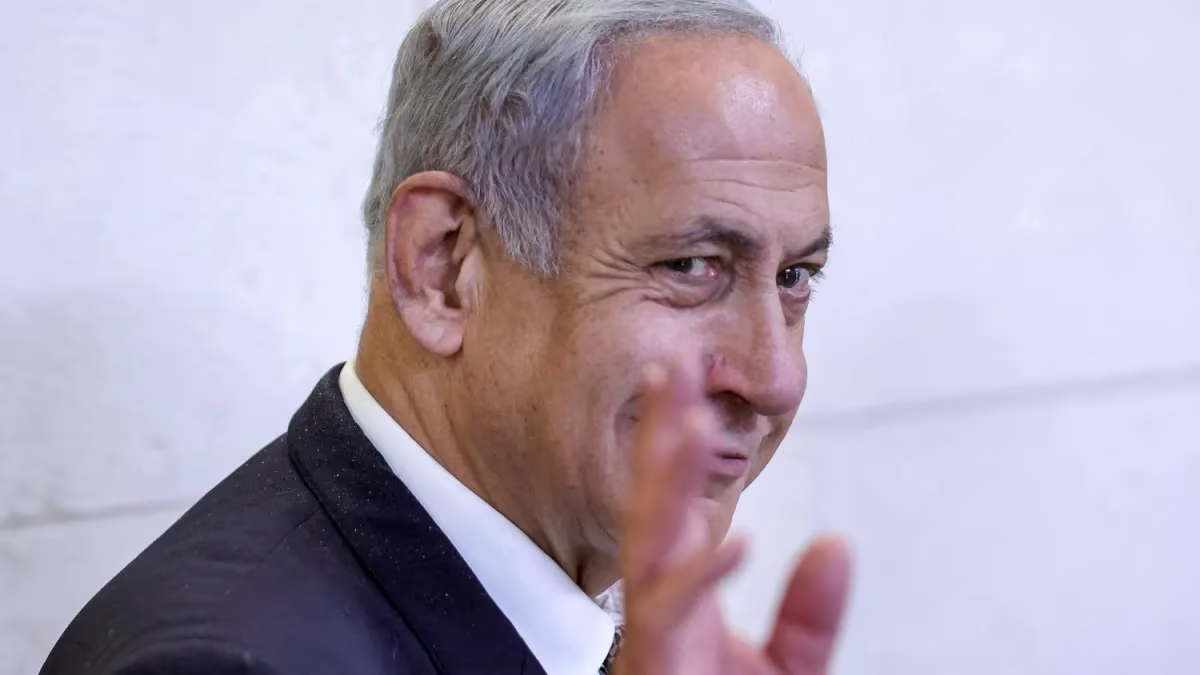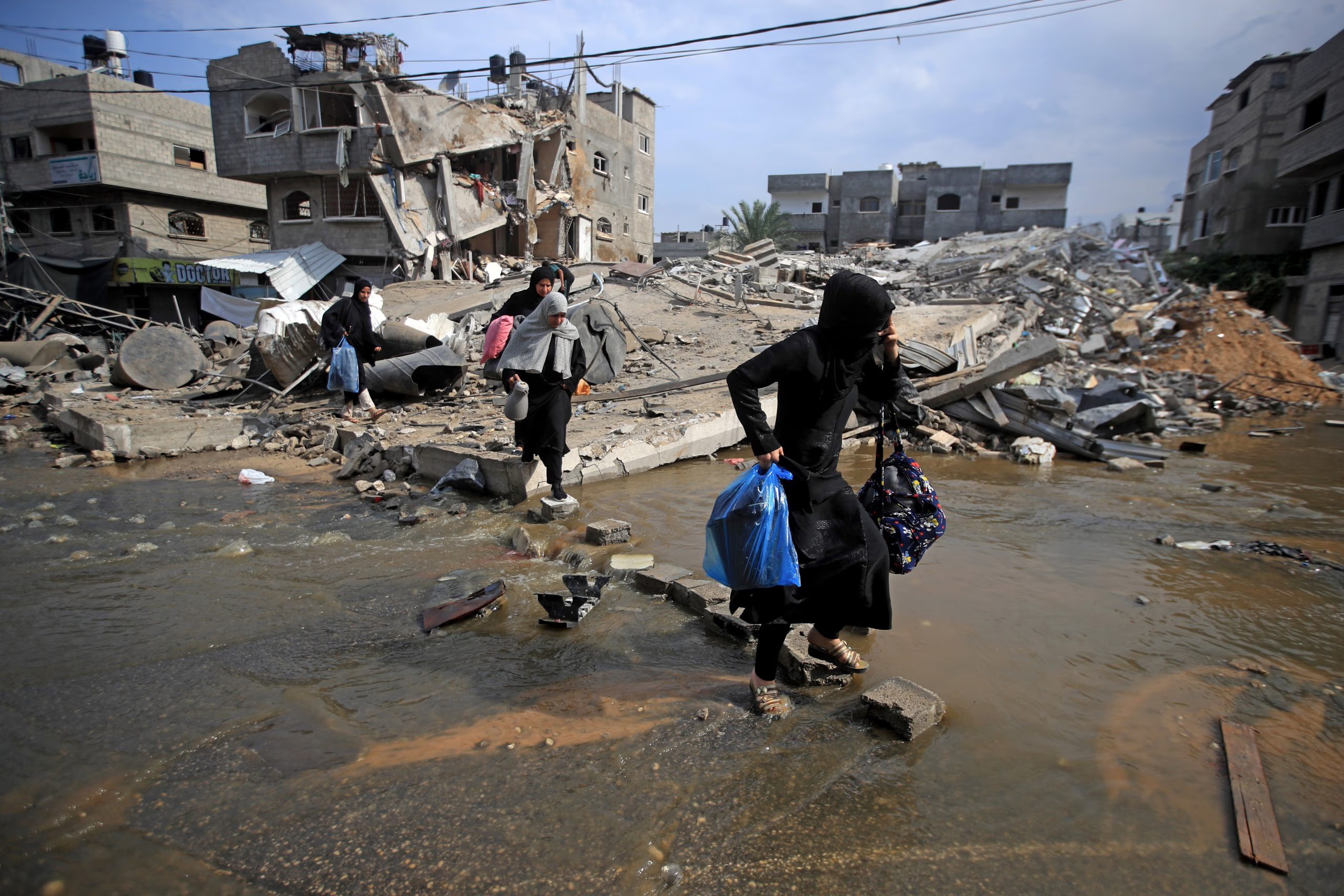More than a year and a half into the devastating war in Gaza, international pressure on Israel is mounting. France has officially declared its readiness to recognize Palestine as an independent state. On July 29, the UK prime minister announced that his country will recognize Palestine in September.
Meanwhile, internal opposition is growing within Israel itself: mass protests are taking place in Tel Aviv against the army’s actions in Gaza. Increasingly, Israelis are questioning where Benjamin Netanyahu’s policy is leading—and what its cost will be, both for themselves and for the future of the region.
Against this backdrop, the United States—central to any peace process—faces a pivotal choice. This article examines what is happening now, the role of Donald Trump, and why the question of Palestinian statehood has once again become the central issue in Middle East politics.
After the strikes on Iranian nuclear facilities and a cease-fire agreement between Tehran and Tel Aviv, there was renewed hope for peace in Gaza as well. But late last week, the U.S. and Israel suspended their participation in negotiations, accusing Hamas of a lack of coordination. The group demands that the U.S. act as guarantor of the truce, that Israel withdraw its forces, and that the UN scale up aid deliveries amid widespread famine.
The Trump administration’s withdrawal from talks and its continued support for Israel now threaten to derail the U.S. plan to normalize relations between Israel and Saudi Arabia—something the region badly needs after nearly two years of destruction.
Meanwhile, the Netanyahu government shows no real interest in peace. Even after the release of hostages, it continues to demand the disarmament of Hamas and the preservation of Israeli security control in Gaza and the West Bank.
Defense Minister Yoav Gallant is pushing a plan to relocate Palestinians to an isolated zone on the ruins of Rafah. Former Prime Minister Ehud Olmert has called it "a concentration camp." More than two million people could be confined to an area a third the size of Washington, D.C., ahead of their possible expulsion from the strip.
"We are continuing to destroy homes, and they have nowhere to return to," Netanyahu said. Even when agreeing to a cease-fire, he rejects the very idea of Palestinian statehood—calling it "a threat."
But the settlement formula Netanyahu has proposed is unacceptable. No Arab state will agree to forced relocation—and without recognition of a Palestinian state, normalization is impossible.
France and the United Kingdom are already prepared to recognize Palestine. In Britain, pressure is also growing to impose an arms embargo on Israel and to support the International Criminal Court in its cases against Netanyahu and Gallant for knowingly pushing Gaza’s population into famine.
If the situation is not halted, Netanyahu may succeed in engineering the mass displacement of Palestinians—and in derailing Trump’s efforts to redefine U.S. Middle East strategy. He is one of the few actors whose goals directly conflict with Trump’s.
And yet it is Trump who holds the unique political leverage to compel Netanyahu to abandon territorial ambitions and agree to conditions under which Palestinian statehood could be recognized.

A mother and child from Gaza suffering from life-threatening malnutrition. July 25, 2025.
Netanyahu as an Obstacle to Peace: How the Israeli Prime Minister Undermined Trump’s Initiative
From the beginning of his presidency, Trump aimed for a landmark peace deal in the Middle East. But by involving Netanyahu in the drafting of the 2020 plan, he doomed the initiative to failure.
The document reflected only Israeli interests: it did not require troop withdrawals, settlement evacuations, or include a right of return for refugees. Palestinians rejected it as the formalization of an apartheid regime—something later affirmed by the International Court of Justice.
For Netanyahu, the plan was a way to appear as a peacemaker—while depriving Trump of a genuine agreement that acknowledged Palestinian rights.
Trump may not have fully understood how deeply Netanyahu’s politics are rooted in denying Palestinian self-determination. "Everyone knows it was I who blocked the creation of a Palestinian state for decades," Netanyahu once said. For more than 20 years, he has obstructed every step toward Palestinian independence.

Benjamin Netanyahu and Donald Trump.
Today, Netanyahu is not only close to blocking Palestinian statehood altogether—he is also moving toward the annexation of occupied territories. Just days after the Hamas attack in October 2023, Israel’s Ministry of Intelligence unveiled a plan for Gaza’s depopulation under the guise of "voluntary evacuation."
Soon after, Israel launched a large-scale operation: neighborhoods were leveled, farmland razed, buildings demolished. More than 59,000 Palestinians have been killed. Critics argue Netanyahu is prolonging the war to cling to power—but his goals run deeper. He would pursue the same policy even without pressure from the court.
A special bureau was created to identify countries willing to accept Palestinian refugees. Meanwhile, in the West Bank—where there is no Hamas threat—Israel launched "Operation Iron Wall" in January, aimed at "applying the lessons of Gaza." More than 40,000 Palestinians have been displaced; infrastructure has been destroyed, symbols of statehood erased, and streets widened for tanks.
The government has also taken control of the land registry, paving the way for the transfer of private plots to Israeli settlers.
Netanyahu openly adheres to his party’s ideology: between the sea and the Jordan River, there is only Israeli sovereignty. In December 2022, he declared that Jews have the exclusive right to the entire territory of the West Bank.
Even more moderate parties have, over the years, moved closer to his position. In July 2024, the Knesset passed a law opposing the creation of a Palestinian state, and just last week approved a resolution supporting its annexation.
The Region Demands Change: Why Arab Leaders Are No Longer Willing to Wait
The events of October 7, 2023, convinced Arab leaders that a comprehensive peace is essential—and the Palestinian question must be at its core. Without resolving the conflict, instability will grow, refugee flows will increase, and regional development will remain paralyzed.
Even in countries where governments are open to rapprochement with Israel, they are constrained by public hostility. Public opinion has become a significant foreign policy factor.
Crown Prince Mohammed bin Salman called Israel’s actions "collective genocide" and reaffirmed that Saudi Arabia is willing to normalize relations only after the recognition of a Palestinian state with East Jerusalem as its capital. Foreign Minister Faisal bin Farhan reiterated this stance in early July.

Protests against the war in Gaza outside the U.S. Embassy in Tel Aviv.
U.S. plans for a broader peace—including Lebanon and Syria—are also in doubt: July’s strikes on Beirut and Damascus have derailed prospects for rapprochement.
Criticism is also mounting within the United States. More and more Trump supporters are demanding a focus on American interests. Tucker Carlson and others have questioned unconditional U.S. support for Israel. In June, podcaster Theo Von called Israel’s actions "genocide."
This is no longer a fringe position: according to a Pew poll, 37% of Republicans—and half of those under 30—view Israel negatively. An Ipsos study found that over 60% of Americans consider Israel a destabilizing force in the Middle East.
Trump’s Window of Opportunity: A New Strategy and International Guarantees
This shift gives Trump the political space to move beyond the traditional U.S. line. He must account for both voter sentiment and the interests of regional allies. This requires:
⋅ preventing Netanyahu from derailing the cease-fire;
⋅ acknowledging that Hamas cannot be fully eliminated;
⋅ strengthening Palestinian institutions;
⋅ and putting the question of Palestinian statehood at the center of negotiations.
⋅ preventing Netanyahu from derailing the cease-fire;
⋅ acknowledging that Hamas cannot be fully eliminated;
⋅ strengthening Palestinian institutions;
⋅ and putting the question of Palestinian statehood at the center of negotiations.
A new initiative must be a radical departure from the 2020 plan. The goal is a deal that wins support from the Middle East, the Islamic world, and Europe. These partners would also be essential to Gaza’s reconstruction—which will require tens of billions of dollars.
The foundation could rest on:
⋅ the 2024 Beijing Declaration, signed by Fatah and Hamas;
⋅ the Arab League plan, backed by the OIC, France, Germany, Italy, and the UK.
⋅ the 2024 Beijing Declaration, signed by Fatah and Hamas;
⋅ the Arab League plan, backed by the OIC, France, Germany, Italy, and the UK.

Benjamin Netanyahu.
As Jeremy Scahill reported, Hamas has proposed an "all-for-all" formula: the release of hostages in exchange for a U.S. guarantee that Israel will not resume the war.
Trump must demand that Israel commit not to restart hostilities. The next step could be the deployment of international forces—first to Gaza, and potentially to the West Bank. In January 2025, the EU and Egypt already brokered a temporary cease-fire.
This would make it possible to implement the Beijing Declaration: transferring Gaza’s administration to Fatah, holding elections, and integrating Hamas into the PLO.
A poll in Ramallah showed that 60% of Gaza residents support a unified government, with more than half backing one led by Fatah.
Reuniting Gaza and the West Bank is essential for recovery. Only a legitimate Palestinian leadership can guarantee implementation of any agreement. By incorporating Hamas into the PLO, Trump would minimize the risk of future disruption to a settlement.
The Cost of War and the Chance for Peace: Why Trump Must Act Now
Achieving this would be beyond the reach of most U.S. presidents. But the war in Gaza has already cost America too much. According to Brown University, the U.S. provided Israel with at least $22.7 billion over the past year—six times the agreed annual cap of $3.8 billion. Washington has also discouraged other countries from recognizing Palestine or imposing sanctions on Israel.

Palestinians cross a flooded street in Beit Lahia, northern Gaza, after an Israeli airstrike damaged nearby infrastructure. October 9, 2023.
Instead of supporting a "forever war"—something America’s Arab allies oppose—Trump should focus on peace.
He has already shown his independence—for instance, by opening dialogue with the Houthis and Syrian leader Ahmed al-Shara. Now, he must again distance himself from Netanyahu.
What matters now is this: Trump must renounce any rhetoric about relocating Palestinians and make it clear to Israelis—their security is inseparable from that of the Palestinians.
According to Pew, over 80% of Israeli Jews trust Trump. That gives him a powerful opportunity to say plainly: rejecting Palestinian statehood is a threat to Israel’s security and its standing in the world.
Trump has already shown flexibility—by engaging in direct talks with Hamas to secure the release of an American hostage. Now, he must deliver a lasting cease-fire. And perhaps, if he goes further, peace. But only if Gaza is no longer dying of hunger.
Might Over Right

Israel’s Genocide in Gaza Can No Longer Be Justified as Self-Defense Against Hamas
Repression of Civilians and the Aid Blockade Are Turning Israel Into a Global Pariah

Israel’s Knesset Votes to Annex the West Bank

94 Palestinians Die Seeking Food in Gaza
Israeli Forces Open Fire on Crowd Near Aid Trucks

